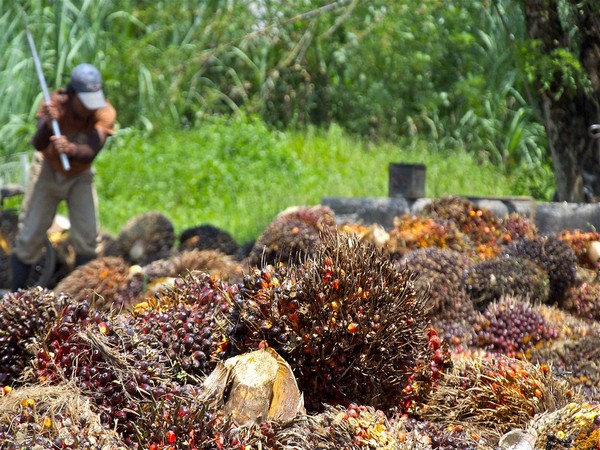Palm oil farming not good for environment: Study
Palm oil has become part of our daily lives, but a recent study serves as a reminder that intensive farming of this crop has a major impact on the environment.

- Country:
- United States
Palm oil has become part of our daily lives, but a recent study serves as a reminder that intensive farming of this crop has a major impact on the environment. Indonesia and Malaysia together account for nearly 85 per cent of global palm oil production. This oil is commonly used in processed foods, cosmetics and biofuels, and while it is inexpensive, the environmental and social costs are high.
Each year, thousands of hectares of rainforest disappear in order to meet the growing demand for oil worldwide. In 2012, Indonesia had the highest deforestation rate in the world, according to a study published in the journal, 'Nature Climate Change'. The study analysed the carbon costs and benefits of converting rainforests into oil palm plantations. Drawing on more than two years' worth of data collected by the University of Gottingen on the soil and vegetation in central Sumatra, the researcher compared the impact of oil palm monoculture with that of intensive and extensive rubber cultivation practices.
Converting rainforest land into oil palm plantations leads to the most important carbon emissions: one hectare of converted land equates to a loss of 174 tons of carbon, and most of this carbon will find its way into the air as CO2. "The quantity of carbon released when just one hectare of forest is cleared to grow oil palms is roughly equivalent to the amount of carbon produced by 530 people flying from Geneva to New York in economy class," said the researcher.
Thomas Guillaume, a postdoctoral researcher at EPFL's Ecological Systems Laboratory (ECOS) and the Swiss Federal Institute for Forest, Snow, and Landscape Research (WSL), is the lead author of a synthesis study on the environmental impact of oil palm cultivation in Indonesia. This loss estimate is higher than the figure published by the Intergovernmental Panel on Climate Change (IPCC) to quantify the number of greenhouse gases emitted by oil palm farming; it is also higher than the figure used by sustainable palm oil certification bodies.
The study also shows that carbon loss in the soil must not be overlooked as it is currently happening with the present methodologies when plantations are established on non-peatland. But this positive finding should not obscure the downsides. Following the harvest, the amount of biomass that returns to the soil to feed living organisms in the ground can be 90% lower than in a rainforest.
This is because almost no natural "litter" -- dead leaves and wood -- goes back into the ground, as the soil on oil palm plantations is constantly being cleared and treated with pesticides to make the farmers' work easier. As a result, large amounts of fertilizers are needed to make up for the loss of fertility in the soil and the decrease in its biological activity.
This study also offers some practical advice on reducing the short-term environmental impact of both rubber tree and oil palm monocultures. For one, deforestation should be done only if the wood that is felled can then be used -- such as for construction purposes -- without being burned. In addition, a more abundant layer of vegetation should be left on the ground as a natural fertilizer. Finally, the waste from palm oil mills should be returned to the soil as another form of fertilizer. (ANI)
Also Read: Indian men face Malaysia, women to play Japan in Olympic Test openers
(This story has not been edited by Devdiscourse staff and is auto-generated from a syndicated feed.)
ALSO READ
I am confident that my visit to Kuwait will further strengthen special ties of friendship between people of two countries: PM Modi.
Striking Grounds: Starbucks Baristas Unite in Protest
With end of insurgency in northeast, time has come for change in approach of police force to ensure people get speedy justice: Amit Shah.
German chancellor: Nearly 40 people 'are so seriously injured we must be very worried about them' after market attack, reports AP.
Ten people including children have been killed in a stampede in Nigeria at a Christmas food distribution event, reports AP.










